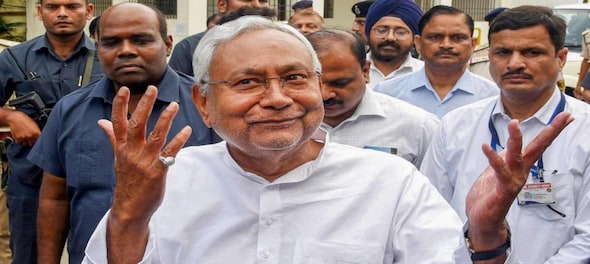
Bihar Chief Minister Nitish Kumar injected a status-altering element in the country’s political matrix when on October 2, the State Government released the report of a Caste-based survey it conducted.
The data shows of the 13.07 crore population in Bihar, 27.13 percent fell in the Other Backward Classes (OBC) category and 36 percent in Extremely Backward Classes (EBC). Together these constitute 63 percent. Juxtapose this with the existing 27 percent reservation in government jobs and educational institutions while the general category including upper castes stood at 15.5 percent are eligible to compete for 50 percent of opportunities.
These figures speak for itself and parties advocating social justice will pitch for a greater share of resources for the majority of people who have not benefited equally from the welfare measures undertaken by the government.
The survey to collect information on the socio-economic conditions of the people in Bihar began in January. The objective was that it would help the government draw policies that would benefit the disadvantaged groups.
The exercise was stalled in between following legal challenges. A perception was created that the Bharatiya Janata Party was disinclined to sail along with the move even though the state unit came out in support of it.
One reason for such perception was the criticism by the RJD leader Lalu Yadav who charged the BJP-led Union Government neither wants to conduct a caste census nationally nor does it want the count in Bihar. This impression arose after an initial stand of the Centre in the Supreme Court but later amended to maintain that only it was empowered under the Census Act (1948) to conduct a statutory process like the census.
Also Read: As Bihar, Centre spar over caste census, find out the difference between census and survey
Now with the report out in the open, the political landscape in the country would alter in general and certainly in Bihar. The state government would carve out welfare policies around the data. The Congress backs the move and at its Raipur plenary the party promised to create a separate department of OBCs. Congress president Mallikarjun Kharge wrote to the Prime Minister to conduct a caste census.
On his part, Rahul Gandhi kept raising the need to disclose the 2011 caste census data. Championing the cause of the OBCs, he pointed out in Parliament that just a handful of officers occupy the top most bureaucratic position in the Central Government. His slogan “Jitni Abadi, Unta Haq” which roughly translates as people should get rights in proportion to their population endorses greater share for OBCs.
Caste census is a political issue and for the BJP which takes pride in getting support from this section of the society, the issue is too sensitive to be seen standing in the way.
The concept of bringing forth and building OBC leadership began in the BJP around the time when during the 1989-1992 period Mandal-Kamandal politics dominated the discourse. Prominent OBC members of the party at that time included Kalyan Singh and Uma Bharti. Later PM Narendra Modi, as the Chief Minister joined the ranks.
Though Prime Minister Vishwanath Pratap Singh decided to implement the Mandal Commission report on OBCs, the task of translating it into reality fell upon the Congress government of P V Narasimha Rao. Ironically, around that period the Congress alienated itself from the OBCs as the party was largely controlled by upper caste leadership.
As the country enters the home stretch for the 2024 Lok Sabha elections, debate around the issue will accentuate and parties on the I.N.D.I.A. platform would throw weight behind the demand for incorporating caste data since the decadal census exercise got delayed on account of the Covid-19 pandemic.
One immediate impact of the Bihar decision would be felt in Uttar Pradesh, especially in the adjoining eastern parts of the politically sensitive state. The OBCs parties like the Suheldev Bharatiya Samaj Party of Rajbhars, one of the most backward, and Apna Dal (Sonelal) of Kurmis, a dominant group among OBCs are for such a census. Bihar Chief Minister Nitish Kumar is a Kurmi.
Voices within the BJP are now suggesting that the Justice Rohini Commission that prepared a report on sub-categorisation of OBCs should be made public. The report was presented to President Droupadi Murmu in July this year. As a party that is credited with setting the narrative, the BJP would like to regain the initiative on the issue instead of allowing the opposition to steal the thunder.
—The author, KV Prasad, is a senior journalist and has earlier worked with The Hindu and The Tribune. Views expressed are personal.
Read his previous articles here
(Edited by : C H Unnikrishnan)
First Published: Oct 4, 2023 7:52 AM IST
Check out our in-depth Market Coverage, Business News & get real-time Stock Market Updates on CNBC-TV18. Also, Watch our channels CNBC-TV18, CNBC Awaaz and CNBC Bajar Live on-the-go!


Just 8% women candidates contested first two phases of Lok Sabha polls
Apr 29, 2024 12:00 PM
The sexual assault case against Prajwal Revanna — here's what we know so far
Apr 29, 2024 11:36 AM
Repolling underway at one polling booth in Chamarajanagar LS segment in Karnataka
Apr 29, 2024 10:32 AM

